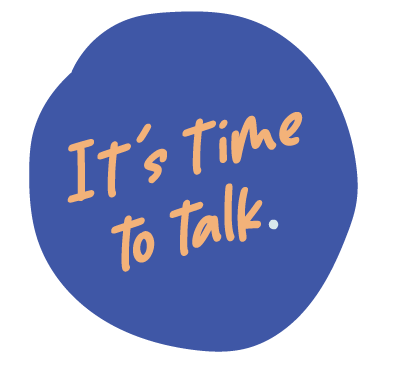How to help someone you know
Signs of Abuse
Recognising that someone you know is being abused by their partner is the first step in you being able to support and help them.
Abuse takes many forms and isn’t always easy to see. Physical abuse can be more obvious, resulting in injuries that can’t be explained. Non-physical abuse is harder to see but can lead to emotional and behavioural changes, or a decline in a person’s mental health.
Signs that a friend may be being abused:
Sometimes signal of abuse are more obvious in the dynamics between your friend and their partner.
Behaviours indicating that a person may be in an abusive relationship:
What to Say
Most people experiencing domestic or family violence don’t go to police or services. They’re more likely to tell a friend or family member. What that friend or family member says and does next can make all the difference in terms of that person getting the help and protection they need.
If someone tells you that their partner or another family member is abusing them:
Talking to your friend about their situation can be difficult. You don’t want them to feel more isolated or threatened – especially if they haven’t raised the issue themselves.
Stay calm. Getting defensive or aggravated, or telling your friend what to do may make them shut down.
Start positively. Try saying, “You’re always so fun to be around. I’ve missed you!” This may make your friend feel more comfortable and remind them of your friendship and closeness. Once they are talking openly, you can express your concerns.
Don’t judge what they say When you are in a relationship, it can take time to recognise that the person you love is actually abusing you. If your friend isn’t ready to open up about what’s happening, then just be supportive. Show your concern for their wellbeing, rather than being invasive. Try saying “I am worried about you because …” or “I have noticed things that concern me ...”
Believe what your friend tells you, even if it sounds wrong. This shows you are supportive. If your friend says that their relationship is perfect, believe them. Say that you must have been wrong and why you thought something was going on. Your friend will know that they can trust you and turn to you for help when they’re ready.
Be patient and listen. Just have a conversation and listen to your friend. Abuse in a relationship is complex. People being abused can feel as though they’re the problem and that they deserve what's happening to them. Reassure your friend that they’re not at fault.
Don’t start telling them what to do. Ultimately, your friend will have to decide for themselves if and when to end their relationship. There are lots of reasons why people don’t leave abusive relationships – including fear, dependency, or feeling under pressure or exhausted. Supporting your friend, reminding them of their value and that they deserve to live free from abuse is the most important thing you can do for them.
It is not easy when a friend is experiencing abuse. Remember to do the best you can to support them and know that you are doing a good thing in looking out for them.
It is not easy when a friend is experiencing abuse. Remember to do the best you can to support them and know that you are doing a good thing in looking out for them.
Adapted from the One Love website. For more information, see Love: the Good, the Bad and the Ugly – I’m worried about my friend
Bystander Intervention
Sometimes you may hear or see someone being abusive, discriminatory or violent. It may be someone you know or a complete stranger. In either case, it can be hard to challenge that behaviour. But you taking action (however small) can make a huge difference to the person on the receiving end of that abuse. It tells both the abusive person and the person it's directed at that this behaviour is not OK. Doing nothing can send the opposite message.
Follow your instincts - if a situation feels wrong, it probably is. Ask yourself, “If I don’t act, could this situation be repeated or get worse?” IF YES, then decide the best and safest way to intervene. At the very least, you might prevent the situation from escalating.
Possible scenarios:
You hear an acquaintance or friend make a sexist, derogatory or threatening comment. Roll your eyes and shake your head. Don’t laugh. Tell them that you don’t think that comment was cool or ask “what decade are you living in?” Sit between the person making the comment and the person being disrespected. Acknowledge what happened – tell the victim that you are sorry about what was said.
You see someone looking distressed. Ask the person if they are alright, if they need help or if they want you to call a friend for them or the police.
You see a drunk person being taken advantage of at a bar. Ask the person if they need a taxi. Suggest to the aggressor that they leave the person alone. If the situation escalates, speak with bar security staff.
You hear shouting or screaming coming from a neighbour’s home. Call the police.
Click on Our Watch for more information about being an active bystander.



